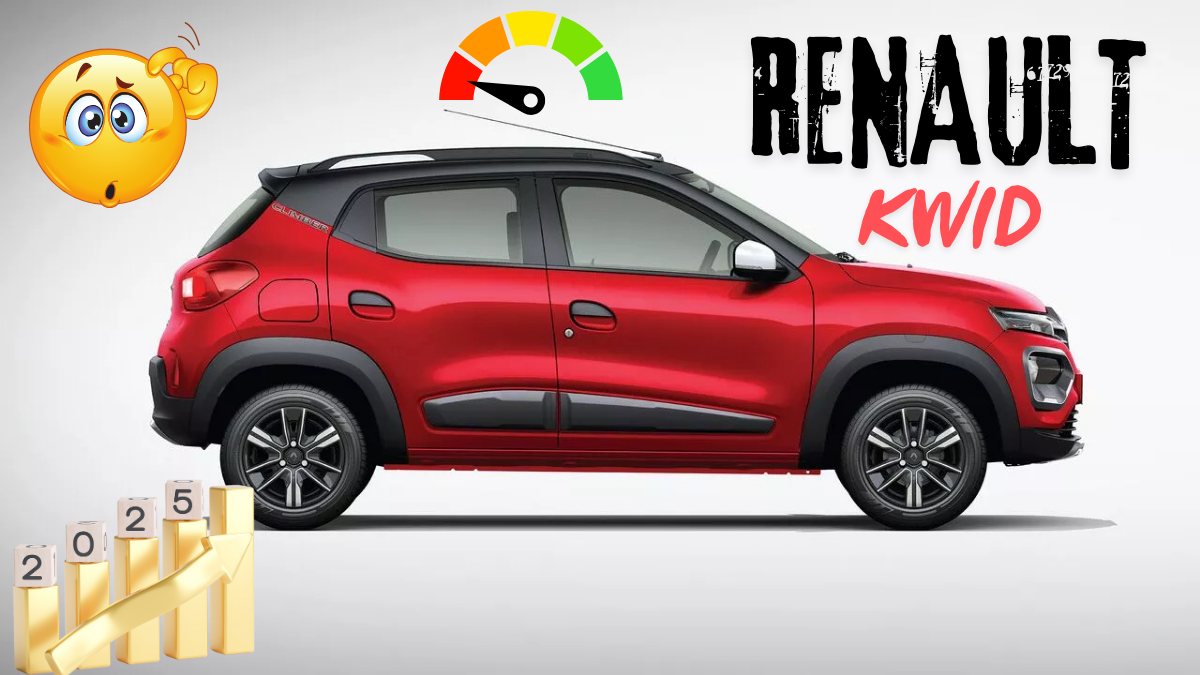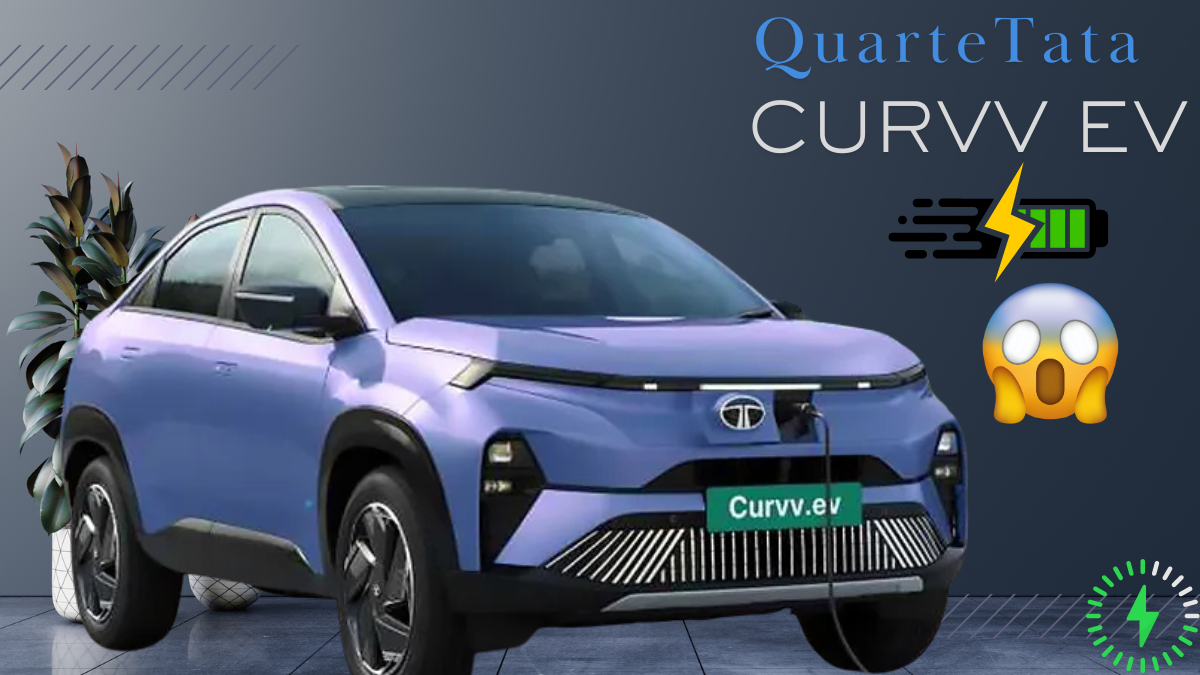Executive Summary — Volkswagen Virtus
The Volkswagen Virtus is a cool mid-size sedan that stands out by mixing German engineering, strong build quality, and a fun driving experience. It’s not just a regular family car; it aims to be more exciting in a world full of SUVs.
The big question: Can the Volkswagen Virtus give you both great performance (“madness”) and good fuel efficiency (“mileage”)? The answer is yes — especially with the 1.5 TSI EVO engine. This version uses smart Active Cylinder Deactivation (ACT) technology, which lets it roar when you want power but saves fuel when you don’t.
- The 1.5 TSI EVO is perfect if you want a sporty drive and often hit the highway. It’s available with automatic (DSG) or manual gearboxes and balances power with real-world fuel savings.
- The 1.0 TSI engine suits people who mostly drive in the city and care more about fuel economy, while still having enough power for highway trips.
Both versions keep Volkswagen’s promise of safety and premium quality, offering a smooth ownership experience beyond just specs.
The Quest for Automotive Balance
In today’s world, where SUVs are stealing the spotlight and fuel efficiency is a must, sedans like the Volkswagen Virtus have a tough job staying cool and relevant. Usually, cars either have powerful engines that drink more fuel, or they save fuel but lose on performance — a tricky balance to nail.
Volkswagen Virtus steps up with two turbo petrol engines:
- The 1.0-liter TSI for better fuel savings
- The 1.5-liter TSI EVO for stronger, sportier performance
Both engines promise that classic Volkswagen smooth drive.
This report digs deep to see if the Virtus really pulls off the best of both worlds — good mileage and exciting madness — by looking at official numbers and real-life owner feedback.
III. The Performance Proposition: How Fast is the Volkswagen Virtus?
A. The 1.5 TSI EVO: Engineered for Enthusiasm
- The Volkswagen Virtus GT 1.5 TSI EVO is the performance star — powered by a 1.5L turbocharged engine pumping out around 148-150 bhp and 250 Nm torque.
- It rockets from 0 to 100 km/h in just 8.8 seconds and maxes out at a sleek 203 km/h, capped electronically.
- The engine delivers instant torque at low revs, meaning quick acceleration without waiting.
- Comes with a 7-speed DSG automatic gearbox with fast, smooth shifts and paddle shifters for sporty control. There’s also a manual option for purists.
- The ride is rock solid at high speeds, with sharp steering and excellent cornering — some call it one of the best handlers in its class.
- The suspension is a bit firm on city roads but shines on highways with great stability.
- Perfect for drivers who want exhilarating, manageable “madness” — fast and fun but still easy to control.
- Note: The DSG can feel a bit snappy or clunky in stop-and-go city traffic, a trade-off for its sporty nature.
B. The 1.0 TSI: Spirited and Capable
- The 1.0 TSI is the practical daily driver, with a 1.0L turbo engine delivering 114 bhp and 178 Nm torque.
- Owners say it’s peppy, with smooth gearshifts and great throttle response — perfect for city drives and light highway use.
- Available with manual or automatic transmission.
- Handles tight city roads well with light steering, and stays stable on highways.
- For quick overtakes when fully loaded, it may need a downshift — not built for aggressive driving but definitely not underpowered.
- Loved for its fuel efficiency, affordability, and smooth driving experience.
- A “fast enough” option for most drivers focusing on daily commuting rather than high-speed thrills.
IV. The Efficiency Equation: How Fuel-Efficient is the Volkswagen Virtus?
Understanding fuel efficiency means looking at official numbers alongside real-world stories — the dance between lab magic and street hustle.
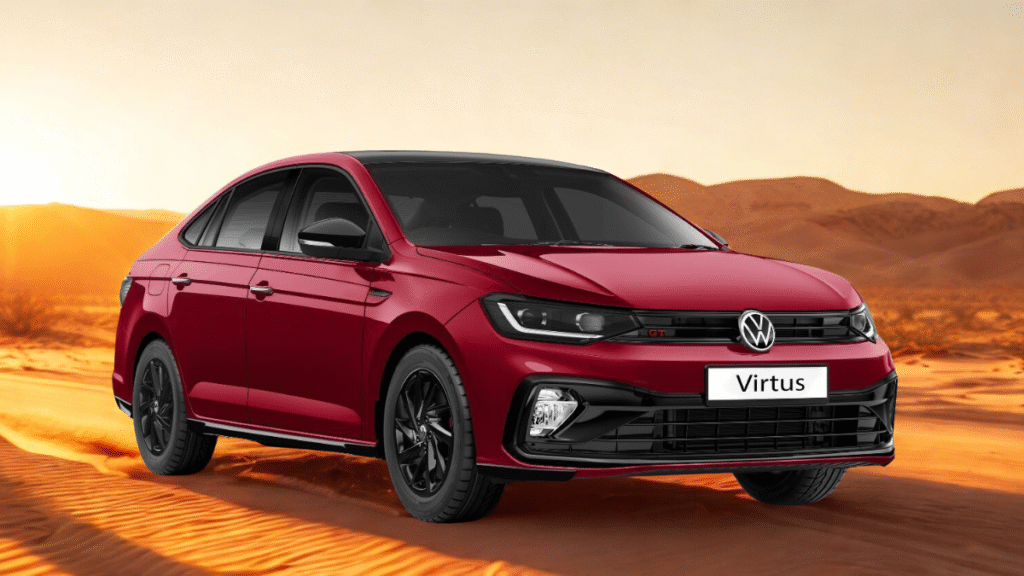
A. Official ARAI Mileage Figures
(Lab-tested, standardized fuel efficiency benchmark)
| Variant Name | Engine (cc) | Transmission | ARAI Mileage (kmpl) |
|---|---|---|---|
| Volkswagen Virtus Comfortline 1.0 TSI MT | 999 | Manual | 20.19 |
| Volkswagen Virtus Highline 1.0 TSI AT | 999 | Automatic | 18.70 |
| Volkswagen Virtus GT Plus 1.5 MT | 1498 | Manual | 18.88 |
| Volkswagen Virtus GT Plus 1.5 TSI EVO DSG | 1498 | Automatic | 19.62 |
Note: The 1.5 TSI EVO DSG, despite having a bigger engine, outperforms the 1.0 TSI automatic in mileage thanks to advanced tech like Active Cylinder Deactivation (ACT) and the efficient DSG gearbox. This flips the script on power vs. economy.
B. Real-World Fuel Economy: Owner Experiences & Key Factors
| Variant | Driving Condition | Reported Mileage Range (kmpl) | Key Factors / Notes |
|---|---|---|---|
| 1.0 TSI | City (Heavy Traffic) | 8 – 10 | AC use, stop-and-go traffic |
| 1.0 TSI | City (Clear Roads) | 11 – 12 | Moderate traffic |
| 1.0 TSI | Highway (Light Foot, Cruise) | 11 – 13 | Steady speeds, minimal aggressive accel |
| 1.5 TSI | City (Moderate Traffic) | 11 – 14 | Traffic & driving style dependent |
| 1.5 TSI | Highway (Light Foot) | 16 – 18 | Consistent cruising, ACT active |
| 1.5 TSI | Highway (Loaded / Spirited) | ~14 | 5 occupants, loaded boot, 120-130 kmph |
| 1.5 TSI | Spirited Driving | 9 – 10 | Aggressive acceleration, high RPMs |
- The 1.0 TSI dips far below official mileage in city stop-and-go, forced to work harder and spool turbo more often.
- The 1.5 TSI EVO surprises with highway mileage that beats the 1.0 TSI, thanks to ACT and relaxed cruising vibes.
- Driving style is king — steady feet unlock the best economy, aggressive moves slam it down.
C. Active Cylinder Deactivation (ACT): The Efficiency Secret of the 1.5 TSI
| Aspect | Details |
|---|---|
| What it does | Shuts off 2 cylinders during cruising to save fuel |
| Typical activation speed | Around 1800-2000 rpm, usually under 110 km/h on flat roads |
| Real-world variations | Some report activation even at 110+ km/h with gentle throttle |
| Indicator | “Eco” symbol on instrument cluster |
| Transmission differences | Manual offers more direct control over ACT activation; DSG also triggers it smoothly |
| Impact on efficiency | Key to 1.5 TSI’s surprising dual personality — powerful when needed, efficient when cruising |
- ACT’s magic only works if you ride smooth and steady — aggressive driving or constant traffic jams mute its effect.
- This means fuel economy isn’t automatic; it’s a mindful dance between car tech and driver skill.
- The Virtus can be both mad and mild, but the driver’s vibe decides the balance.
V. The Synthesis: Can the Virtus Truly Be Both?
The heart of the question — can the Virtus balance madness and mileage? The answer whispers a yes, but with different rhythms for its two soulmates: the 1.5 TSI EVO and the 1.0 TSI.
A. The 1.5 TSI EVO: Performance with Pragmatic Efficiency
| Aspect | Details |
|---|---|
| Power & Torque | 148-150 bhp, 250 Nm |
| Acceleration | 0-100 kmph in ~8.8 seconds |
| Top Speed | Electronically limited at 203 kmph |
| Driving Experience | Instant acceleration, seamless power, precise steering, stable at high speeds |
| Transmission | DSG gearbox – smooth and refined, though quirky at low speeds |
| Mileage (Real-World) | City: 11-14 kmpl Highway: 16-18 kmpl |
| Efficiency Tech | Active Cylinder Deactivation (ACT) – key to balancing power with fuel economy |
| Character | Dual persona — raw power meets refined control; spirited or economical at driver’s will |
B. The 1.0 TSI: Balanced Performance, Consistent Efficiency
| Aspect | Details |
|---|---|
| Power | 114 bhp |
| Performance | Peppy, well-suited for city and light highway driving |
| Official Mileage | ARAI: 20.19 kmpl (manual), 18.70 kmpl (auto) |
| Real-World Mileage | City: 8-10 kmpl in heavy traffic (lower than ARAI) Better on clear roads and highway |
| Driving Experience | Spirited yet predictable, refined, and accessible |
| Market Position | Affordable base variant with premium feel, 5-star safety, signature VW driving experience |
| Character | Practical, balanced, caters to daily needs without the performance extremes of 1.5 TSI |
Virtus’ Dual Nature — Madness Meets Mileage
The Virtus plays a poetic duet between madness and mileage, tuned differently for each variant’s soul:
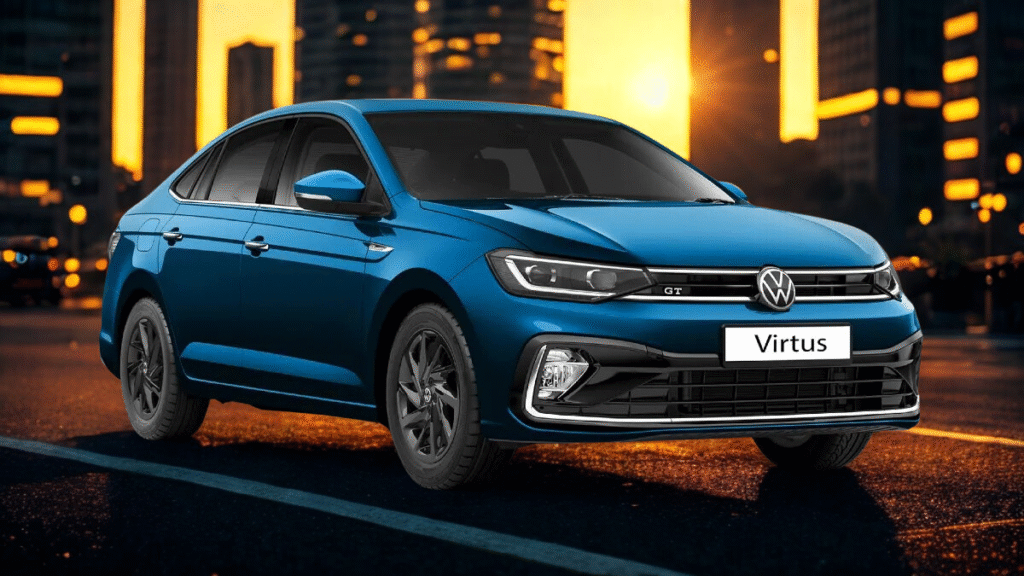
- The 1.5 TSI EVO is a masterclass in contradiction — a beast with a brain, roaring fast but thinking smart. Its ACT tech lets it slip into efficiency mode when the road calls for calm, proving power and fuel economy can coexist in harmony. It’s a car that can dance on the edge or cruise with grace — your mood sets the rhythm.
- The 1.0 TSI is the everyday ride — dependable, zippy, and fuel-smart for city streets and highway journeys alike. It’s the grounded storyteller, making premium feel reachable without demanding the madness. It may lack the sprint of its bigger sibling, but it carries the essence of Volkswagen’s quality and finesse with steady economy.
Together, they reveal the Virtus’ truth: it can be both, but the balance depends on your drive — your style, your pace, your story. The madness and the mileage don’t just coexist; they converse, painting a future where power doesn’t have to cost the earth.
VI. Beyond the Core: Other Ownership Considerations
Owning a Virtus isn’t just about speed and saving fuel — it’s a vibe that stretches deeper, where safety, comfort, costs, and street cred blend into the full experience. Here’s the real talk on what makes the Virtus more than just numbers on a sheet.
Build Quality and Safety: The Fortress Vibe
Volkswagen drops the mic on build quality — that “solid German engineering” that you feel with every thud of a door closing. The Virtus rocks a 5-star Global NCAP rating — not just a shiny badge, but a real-life shield guarding you and your crew.
Six airbags, ESC (Electronic Stability Control), and the kind of sturdy frame that took a real punch and didn’t flinch — this car’s got your back. That blend of toughness and tech isn’t just protection; it’s peace of mind woven into every drive, making the Virtus feel like a fortress on wheels.
This safety aura powers up the premium vibe, making you feel like you’re paying for something built to last — not just today, but way down the road. Even if resale chatter around the 1.0 TSI gives some jitters, the car’s reputation for solid durability paints a “wise investment” picture.
Interior Comfort, Features, and Practicality: The Everyday Luxe
Step inside and you enter a space that’s roomy yet intimate — with ventilated seats (even if some call them a bit noisy), a slick 10-inch touchscreen, and a digital cockpit that’s flashy but sometimes overwhelming. Wireless Apple CarPlay and Android Auto keep you connected, while cooled glovebox and rear AC vents bring comfort to the rear squad.
521 liters of boot space serve up serious practicality, plus high ground clearance to conquer India’s unpredictable roads with ease. Still, it’s “strictly 4-seater” real talk — rear shoulder room and seat angle don’t promise throne-like comfort for three adults.
Some ergonomic choices are a bit wild — like the touch-sensitive AC controls, pretty but tricky enough to be called a “nightmare” while driving, and a digital cluster that might flood your brain with info. It’s a dance between looking sleek and driving sane, and sometimes the slickness trips over simple usability.
Maintenance and Service Costs: Debunking the Myth
Volkswagen’s old rep for scary maintenance costs? The Virtus flips that story. Sure, parts can cost a bit, but they last longer — a tradeoff that eases wallet worries.
Oil changes run ₹4,500-₹7,000 every 15k km; brake pads ₹4,000-₹6,000 every 30k-40k km; DSG oil service ₹12k-₹15k every 60k km; filters ₹1,500. Annual servicing stays in the ₹7k-₹9k zone. Owners report smooth DSG lives and no major breakdowns — just regular care.
Some early tech hiccups in the 1.0 TSI (check engine lights, EPC alerts) got fixed with software updates — showing VW’s attention to detail and aftercare. The brand’s busting myths about DSG reliability and expensive parts, making owning a German sedan less “madness” and more manageable.
Market Positioning and Key Competitors: The Unique Space
Virtus isn’t just playing the game — it’s creating a new one: a D-segment car priced in the C-segment league. That means you get a bigger, more premium feel without the wallet meltdown.
Main rivals? Skoda Slavia (its sibling with similar mileage), Hyundai Verna, and Honda City — all solid contenders, but the Volkswagen Virtus steals the spotlight with its German engineering, thrilling drive, and that unmistakable touch of premium flair. It’s the “enthusiast’s car” in a sea of mid-size sedans, where driving pleasure and solid construction matter more than just the lowest price or feature overload.
For buyers chasing that mix of refinement, thrill, and value — Volkswagen Virtus is a flex worth paying for, carving its own lane beyond specs and numbers.
The Ownership Symphony
So, beyond speed and mileage, owning the Volkswagen Virtus is a multi-layered experience — a fortress of safety, a stage of comfort, a story of smart maintenance, and a badge of unique positioning. It’s a ride that promises more than just daily commuting; it offers confidence, style, and a little bit of that German magic on Indian roads.
VII.Final Verdict
The Volkswagen Virtus isn’t just a ride—it’s a promise that you don’t have to choose between fast and fuel-efficient. It flexes both vibes, but how you vibe with it depends on your own story, your roads, your rhythm.
For the thrill-seekers and highway cruisers:
The 1.5 TSI EVO is your adrenaline anthem.
With 148-150 bhp and 250 Nm torque, it’s a rocket that doesn’t just roar—it glides with precision. That lightning-fast DSG gearbox? It’s like jazz for your hands, syncing smooth shifts with every push of the pedal. On the highway, it balances madness and mileage like a tightrope artist—16-18 kmpl with Active Cylinder Deactivation keeping the engine calm when you want it to be chill. This isn’t raw power; it’s refined chaos, engineered for those who crave thrills without the guilt trip at the pump.
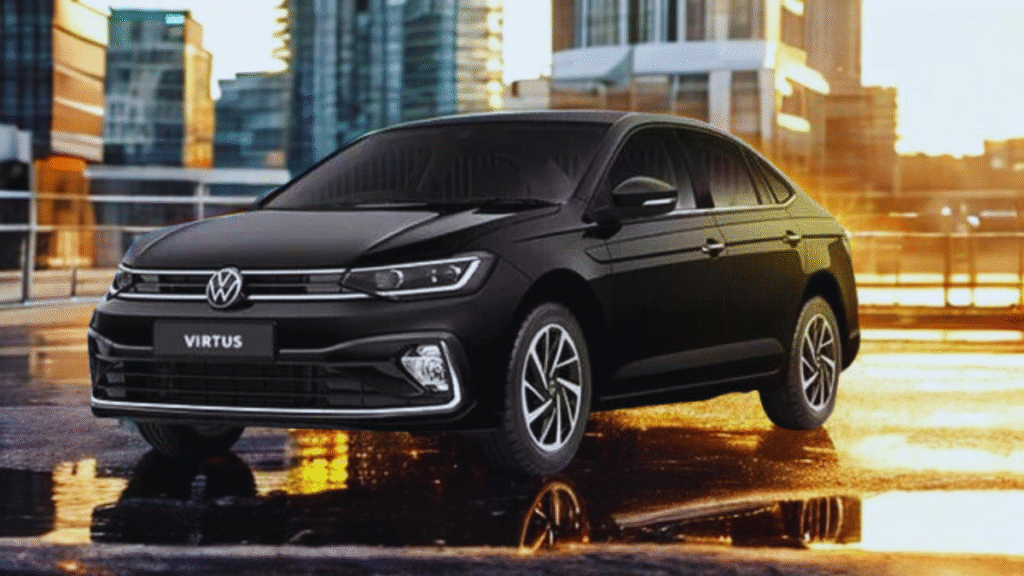
For the city slickers and value hunters:
The 1.0 TSI is the savvy sidekick. Its 114 bhp engine pulses with just enough pep to keep you zipping through traffic and weekend getaways. The city mileage dips in real life, yeah, but it stays steady for its class—smart and efficient without begging for mercy. Wrapped in that iconic German build, safety-first 5-star armor, and a premium feel that whispers quality, this variant is the practical dream. It’s the balanced beat for those who want style, substance, and sensible costs, all in one sleek package.
The final drop:
The Volkswagen Virtus is a masterclass in engineering poetry—where tech and temperament collide to redefine the old “mileage vs madness” battle. The 1.5 TSI EVO shatters stereotypes that power kills efficiency, proving the future can be fast and fuel-wise. The 1.0 TSI doesn’t play second fiddle; it’s the everyday hero that keeps it real with comfort, safety, and wallet-friendly sensibility.
For anyone chasing a sedan that doesn’t just move you, but moves with you—balancing punch and prudence, excitement and ease—the Volkswagen Virtus stands tall. It’s more than a car; it’s duality perfected, a ride that owns both sides of the coin. A solid yes, wrapped in German precision, ready to rule its segment.


